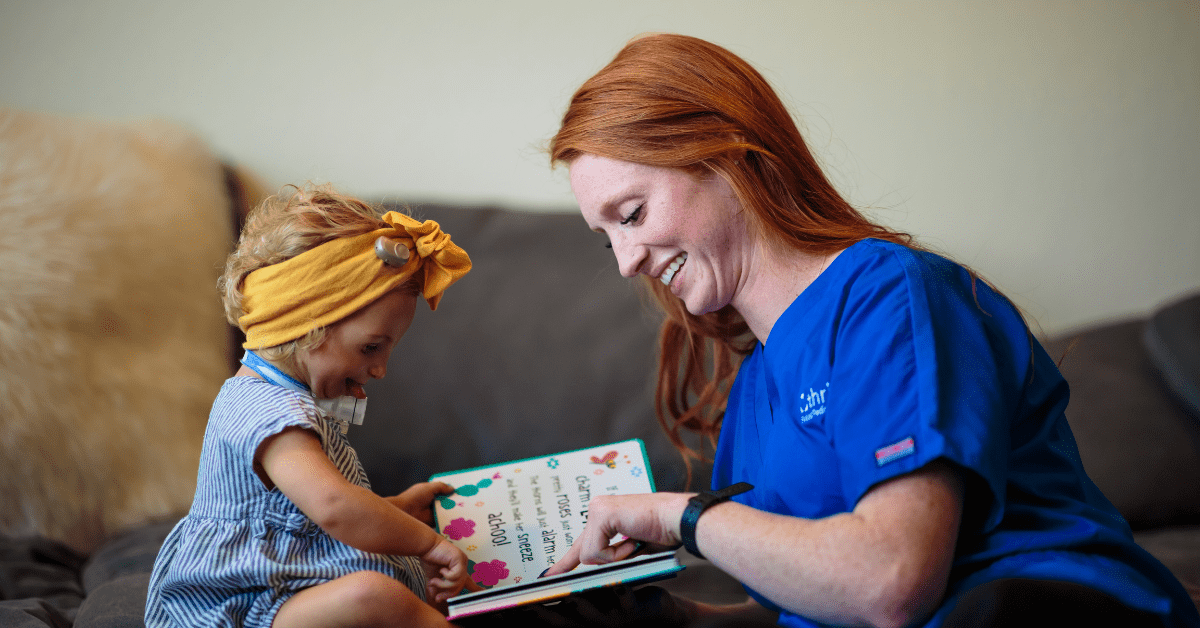How Nurses & Therapists Build Communication with Non-Verbal Pediatric Patients


If you are the parent of a non-verbal child, Pediatric Home Care Nurses and therapists can support you in finding effective ways to build communication.
Why are Patients Non-Verbal?
Non-verbal children have difficulty or the inability to speak or communicate using spoken language. Medically fragile children can be non-verbal due to many different causes, including:
- Autism spectrum disorder (ASD)
- Cerebral palsy
- Feeding and swallowing disorders
- Neurological conditions
- Developmental delays
- Failure to thrive
- Speech and language delays
- Medical interventions like tracheostomies or ventilators
How Nurses & Therapists Learn a Child’s Communicative Style
Nurses and therapists will spend time observing exactly how a child communicates and expresses themself using facial expressions, gestures or pointing, sounds, eye movements, and body language. They will also work with parents and teachers to better understand how a child prefers to communicate.
The Importance of Incorporating Alternative Communication (AAC) Devices
AAC devices are communication systems that allow a person to communicate with those around them without physically speaking. There are many different kinds of communication devices for kids, which include the following:
- Low-tech AAC systems, like gestures, sign language, or letter and picture boards
- Mid-tech AAC devices that have buttons to push that will speak a message out loud
- High-tech AAC devices that offer touch screens that speak a message once tapped
Why Establishing Routines Works
When nurses and therapists create consistent routines and cues, it helps children understand what’s happening and what is expected of them. Predictability builds a sense of safety, giving children confidence to express themselves. A nurse or therapist might use the same words, actions, or signs, which helps patients associate these signals with specific tasks or events. After a while, the child might learn to recognize and respond to or initiate communication.
What if an Approach is Not Working?
An approach a nurse uses for a non-verbal child initially may stop working for many reasons, including:
- The child’s abilities or condition have changed
- The tool used isn’t accessible anymore for the child
Nurses and therapists will then observe and reflect, collaborate with caregivers and other members of the healthcare team, and test new tools and strategies.
Speech Therapy Services at Thrive SPC
Thrive SPC, now a part of Aveanna Healthcare, provides in-home Speech Therapy and Language Pathology, helping children to communicate with others and understand what is communicated to them. We offer a unique approach that empowers parents and families and provides the necessary skills so children can improve their communication. Our SLPs have specialty certifications in the following:
- Feeding and swallowing
- Augmentative and alternative communication devices (AAC)
- Motor speech disorders
To find out more information about our speech and language services for verbal and non-verbal medically fragile children, head to https://www.thrivespc.com/services/therapy/speech-therapy/.





